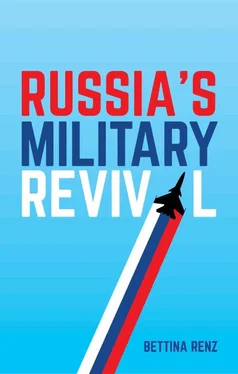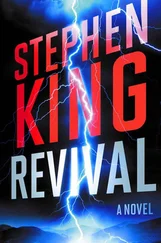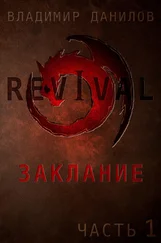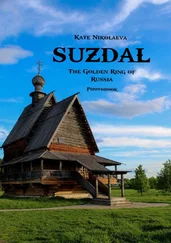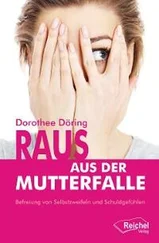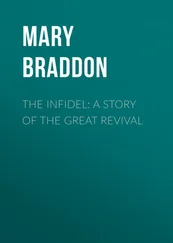On 26th March we are electing not only the head of state but also appointing the Supreme Commander because the President, by virtue of his office, is simultaneously the Supreme Commander of the Armed Forces. Russia is one of the biggest countries in the world and a strong nuclear power. This is something that not only our friends remember. Let me repeat that we are electing the President, whose duty is to ensure economic recovery, restore the country’s prestige and leading role in the world, make Russia governable again, and deliver stability and prosperity to everyone. (Putin 2000)
As the next chapter shows, the Russian military’s fortunes changed with the election of Putin to the presidency. This was helped by the rapidly improving economic situation and because the new president made military-related matters a real priority from the outset. Putin’s vision of Russia as a great power, which he shared with most of his predecessors, strengthened his resolve not only to declare this a priority, but to ensure that this priority would be met.
In spite of the strong emphasis by Putin on the importance of military power, Western analyses of Russian foreign policy during the first decade of his rule focused on the Kremlin’s use of energy policies to seek influence around the world. As it happened, the country’s emergence as an ‘energy superpower’ never materialized as some had expected. The use of gas and oil for the achievement of foreign policy objectives did little to restore Russia’s international status and was even counterproductive. As Peter Rutland put it, ‘rather than boost Russia’s prestige and authority, it has stoked anxiety and driven countries to seek alliances and take other steps to protect themselves from Russian pressure’ (2008). Although military modernization had proceeded with impressive speed since 2008, it was not until the annexation of Crimea in spring 2014 that the West’s attention turned to the significance of military power in the Kremlin’s quest for great power recognition.
Russia’s efforts to strengthen its military power in pursuit of international status recognition, today and in the past, have not only been a factor in its foreign policy; they have also had significant domestic dimensions and consequences. Military reforms have had most impact and raised Russia’s global status most effectively when accompanied by changes to the internal fabric of the Russian state. For example, Peter the Great’s modernization drive at the start of the eighteenth century focused first of all on the army and navy, because a modernized military was seen as an important prerequisite for Russia’s status as a great European power. Like many later Russian leaders, Peter harnessed autocratic power to mobilize society and the economy for war (Fuller 1992: 83–4; Snyder 1994: 182). However, his reforms also led to changes in Russian society in the spheres of education, culture, administration, science and technology. In contrast, in the first half of the nineteenth century, Tsar Nicholas I sought to maintain Russia’s great power status whilst pursuing conservative domestic policies and resisting any attempts to modernize Russian society and internal affairs. Russia’s defeat at the hands of Great Britain, France and Turkey in the Crimean War at the end of his reign showed how the country’s comparative power had declined. Internal stagnation had contributed to external problems, brought into sharp focus by a major military defeat. Alexander II, who ruled the Empire from 1855 to 1881, focused first and foremost on domestic issues. But at the same time, Russia exerted itself in efforts to reverse some of the conditions it had been forced to accept following defeat in the Crimean War, including the imposition of a demilitarized zone in the Black Sea area. He also fought a short but successful war against Turkey in the Balkans in 1877–8 (Jelavich 1991: 143–5). Meanwhile, the idea of Russia’s destiny as a great power was still strongly expressed in intellectual and political circles.
When he became heir to the throne in 1881, Alexander III sought to revive Russia’s status through vigorous efforts to boost his Empire’s economic and military power. Although he was viewed as a conservative, Alexander III focused on economic modernization first of all as a way of building Russia’s military power and international status. During his reign the system of domestic surveillance grew to new heights, but in foreign policy Alexander sought to avoid conflict, being aware of the country’s comparative military weakness. Tsar Nicholas II showed little inclination to modernize the Russian army, but drew heavily on military symbolism and regarded the army as a major bearer of Russian power. This encouraged him to try and boost Russia’s status in international affairs, first through war with Japan in 1904–5, which ended in humiliation and was one of the causes of the 1905 revolution in Russia; and second by going to war with Austria-Hungary in 1914 – the First World War – with disastrous results (Jelavich 1974: 189–280).
In the early years of the Soviet Union, the young state faced a struggle for its very survival, preventing it from playing a part in the international great power game. At the same time, its leaders saw themselves as a new kind of vanguard that would lead a world socialist revolution. Both Lenin and Stalin were acutely aware that the country was well behind the Western powers in terms of economic development and military capability. The failed war with Poland in 1920 underlined the fledgling state’s military weakness. The Soviet Union needed to modernize and build up its military strength in order to be taken seriously in international politics. Rapid industrialization during the 1930s and, above all, the Red Army’s victories over Hitler in the Second World War, meant that the Soviet Union could once again claim to be a great power, and also that its status was internationally recognized. In the Soviet Union, economic and societal transformation did not follow a Western model of modernization, but took a unique path. This reinforced the idea of the Soviet Union as a vanguard state and as a power looked up to by a significant portion of the globe. Ultimately, increasingly fierce military competition with the United States during the Cold War, while the economy was beginning to stagnate, meant that the defence industry and military spending had to be prioritized over all other areas of public spending and investment. Although this approach elevated the Soviet Union to the position of one of the world’s two superpowers, this was not sustainable and ultimately contributed to the country’s demise (Snyder 1987/8: 107).
The importance of a strong military in Russia’s self-perception as a great power provides important context for a nuanced understanding of recent developments. Given that a powerful military has always been seen as a necessity in this respect, the recent military revival is not a surprise. For Russia, military power has always been the means of choice for bridging the gap between its self-perception as a great power and what it viewed as the reluctance of other global powers to grant it this status. In part, this means that the recent military revival has already achieved a central foreign policy objective, as Russia is yet again seen as a force to be reckoned with. This achievement is a double-edged sword, however. As was the case with the Kremlin’s use of energy as a tool of foreign policy, the display of military power in Crimea and Syria has not resulted in a positive image. Moreover, evidence from history suggests that the pursuit of great power status based on military might alone has never been sustainable. Whether the recent military revival will lead to a different result is far from certain. As Fyodor Lukyanov acknowledged in 2016:
Читать дальше
